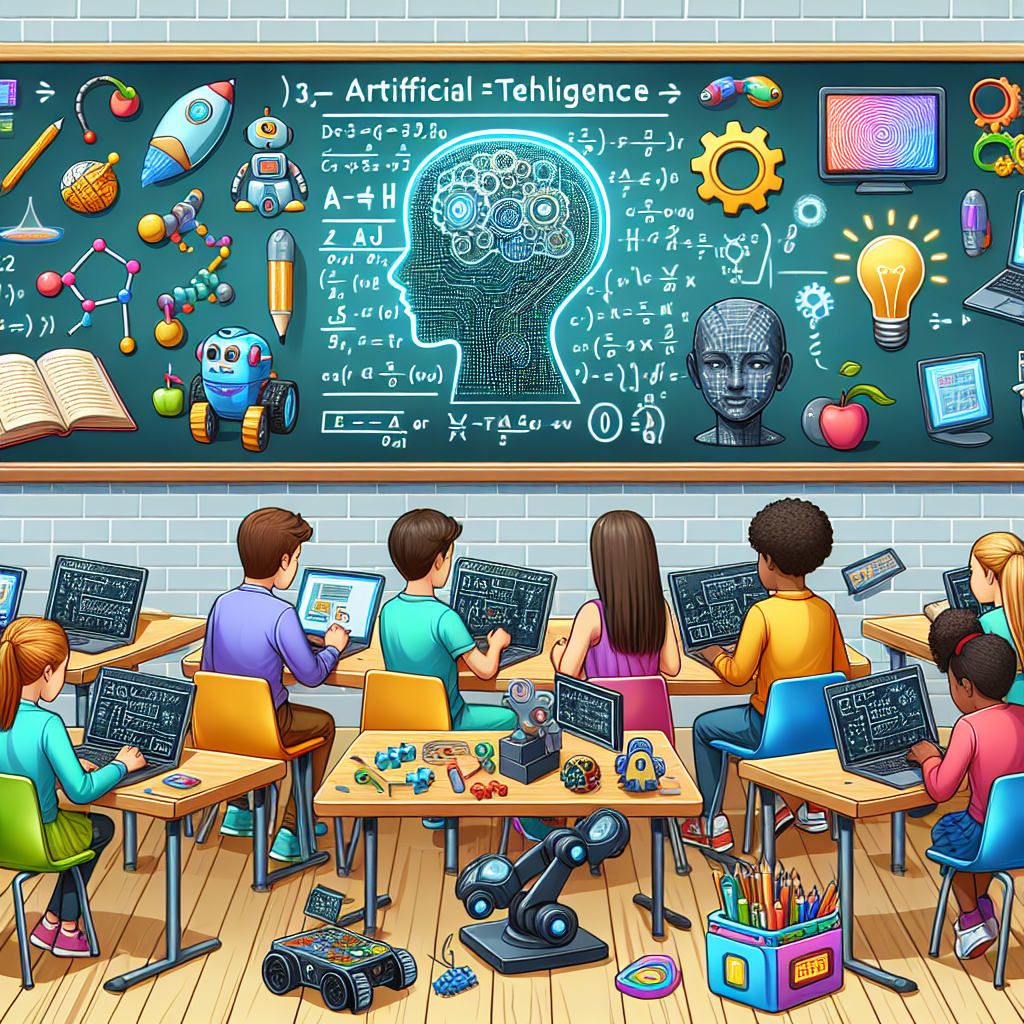The Impact of AI on Gifted Education Programs
Artificial intelligence (AI) has been revolutionizing various industries and sectors, and education is no exception. In recent years, AI has started to make its mark on gifted education programs, providing new opportunities and challenges for educators, students, and parents alike. In this article, we will explore the impact of AI on gifted education programs and how it is changing the landscape of education for gifted students.
What is Gifted Education?
Gifted education is a specialized program designed to meet the unique needs of students who demonstrate exceptional intellectual ability or talent in one or more areas. These students often have a high level of creativity, problem-solving skills, and critical thinking abilities that set them apart from their peers. Gifted education programs aim to provide these students with opportunities to develop their talents and reach their full potential.
The traditional approach to gifted education has involved specialized programs, enrichment activities, and individualized instruction to challenge and support gifted students. However, as technology continues to advance, educators are increasingly turning to AI to enhance and expand gifted education programs.
The Impact of AI on Gifted Education Programs
AI has the potential to transform gifted education in several ways, from personalized learning experiences to advanced assessment tools. Here are some of the key ways in which AI is impacting gifted education programs:
1. Personalized Learning: One of the most significant benefits of AI in gifted education is its ability to personalize learning experiences for students. AI-powered platforms can analyze a student’s strengths, weaknesses, and learning preferences to create customized learning pathways tailored to their individual needs. This allows gifted students to progress at their own pace and focus on areas where they need the most support.
2. Adaptive Learning: AI can adapt to a student’s progress and provide real-time feedback to guide their learning journey. This adaptive learning approach ensures that gifted students are constantly challenged and engaged, pushing them to reach their full potential. By adjusting the difficulty level of tasks and assignments based on a student’s performance, AI can help gifted students stay motivated and continue to grow academically.
3. Advanced Assessment: AI can also be used to assess gifted students’ abilities and track their progress more efficiently than traditional methods. By analyzing data from assessments, AI can identify areas where a student excels and areas where they may need additional support. This information can help educators tailor their instruction to meet the specific needs of each gifted student and ensure they are continually challenged and supported.
4. Virtual Mentors: AI-powered virtual mentors can provide gifted students with additional guidance and support outside of the classroom. These virtual mentors can offer personalized feedback, answer questions, and provide additional resources to help gifted students deepen their understanding of complex concepts. Virtual mentors can also help gifted students explore new areas of interest and develop their talents in a supportive and engaging environment.
5. Collaboration and Communication: AI-powered tools can facilitate collaboration and communication among gifted students, educators, and parents. These tools can streamline communication channels, provide real-time updates on student progress, and foster a sense of community among gifted education program participants. By leveraging AI to enhance collaboration and communication, educators can ensure that gifted students receive the support and resources they need to succeed.
FAQs
Q: How can AI be used to identify gifted students?
A: AI can analyze a wide range of data, including academic performance, test scores, and behavioral patterns, to identify students who demonstrate exceptional abilities or talents. By using advanced algorithms and machine learning techniques, AI can help educators pinpoint gifted students more accurately and efficiently than traditional methods.
Q: How can AI personalize learning experiences for gifted students?
A: AI-powered platforms can analyze a student’s strengths, weaknesses, and learning preferences to create customized learning pathways tailored to their individual needs. By leveraging data analytics and machine learning algorithms, AI can provide personalized feedback, recommendations, and resources to help gifted students reach their full potential.
Q: What are the potential challenges of integrating AI into gifted education programs?
A: While AI offers numerous benefits for gifted education programs, there are some potential challenges to consider. These may include concerns about data privacy and security, the need for professional development to support educators in using AI tools effectively, and the risk of reinforcing existing biases in the education system. It is essential for educators, parents, and policymakers to address these challenges proactively to ensure that AI is used responsibly and ethically in gifted education programs.
In conclusion, the impact of AI on gifted education programs is significant and far-reaching. By leveraging AI-powered tools and platforms, educators can personalize learning experiences, provide adaptive learning opportunities, assess student progress more effectively, offer virtual mentors, and facilitate collaboration and communication among gifted students. While there are potential challenges to consider, the benefits of integrating AI into gifted education programs are clear. As technology continues to advance, AI will play an increasingly important role in shaping the future of gifted education and unlocking the potential of gifted students around the world.

